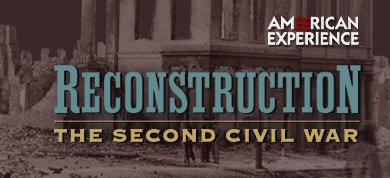Objectives• How and to what extent the onset of freedom impacted the movement of African Americans within and out of the South during Reconstruction.
• How and why Reconstruction ended and how it impacted various groups politically and economically (e.g., scalawags, carpetbaggers and free African Americans). (Free elections in a representative government, inalienable rights, equal justice under the law, private property rights, federalism, due process, individual rights, individual responsibility) • To what extent newly freed African Americans were allowed freedom and equal citizenship. (Inalienable rights, equal protection under the law, individual rights, due process, free elections in a representative government). • The social and cultural effects of the Reconstruction period, and specifically Radical Reconstruction, on newly freed African Americans and the United States. (Inalienable rights, equal justice under the law, private property rights, due process) • To what extent newly freed African Americans benefited politically, socially and economically from the reconstruction of the South. (Individual rights, due process, individual responsibility, equal justice under the law, private property rights, free elections) • How and why the mobilization, devastation and outcome of the United States Civil War impacted northern, southern and western societies and culture. • How and to what extent newly freed African Americans culturally benefited from the political and economic reconstruction of the South • How wars impacted the roles, responsibilities and perceptions of women in American society through Reconstruction. • How Reconstruction policies and legislation impacted the distribution of power between the southern secession states and the federal government. (Structure of government, separation of powers with checks and balances • How the United States Civil War impacted the economies of the northern, southern and western states. (Private property rights, due process) • How and why tenancy and sharecropping prevailed in the South after the Civil War. • How, why and to what extent the Civil War and Reconstruction strengthened the power and authority of the national government over the states. (Federalism) • How, why and the extent to which American wars through Reconstruction effected national power, foreign policy, international affairs and relationships. (Federalism) • How and to what extent the adoption of the 13th, 14th and 15th Amendments to the United States Constitution impacted the freedom and equality of African Americans. (Federalism, equal justice under the law, rule of law, private property rights, individual rights as set forth in the Bill of Rights, individual responsibility, due process, inalienable rights, free elections in a representative government) • How, why, and to what extent executive, judicial and legislative decisions may have increased the power and authority of the federal government (the Compromise of 1877). (Structure of government, separation of powers with checks and balances, federalism, due process) • How and why national economic panics originated and impacted the political, social and cultural development of the United States. (e.g., Panic of 1873) • How and why political parties continued to debate the proper role of government long after the War for Independence ended. • How and to what extent American participation in and debate over war shaped the development and platforms of national political parties. (Federalism, individual responsibility) Combine this and objective above and conduct a mock election from this time period – should be Election of 1876) Reconstruction plans
Freedman’s Bureau Radical Republicans Thaddeus Stevens Andrew Johnson Compromise of 1877 Tenure of Office Act Johnson’s impeachment Scalawags Carpetbaggers Black Codes Ku Klux Klan Sharecroppers Tenant farmers Jim Crow laws The Whiskey Ring Solid South Military reconstruction 13th amendment 14th amendment 15th amendment Civil Rights Act of 1866 Election of 1876 Compromise of 1877 |
ResourcesGuided Reading part 1
Guided Reading part 2 Guided Reading part 3 The Boys in Blue Are Turning Gray (1895 reconciliation song) Reconstruction Lesson from SHEG Great Lessons with America Experience film on Reconstruction |
